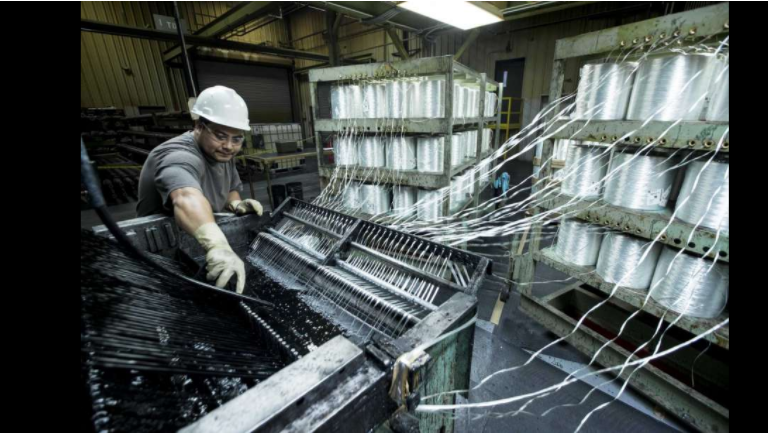Steel Tariff Buoy Houston Fiberglass Costume Manufacturer
Houston glass fiber makers are seeing growth in the case of significant increases in imported steel and aluminum prices.
Champion Fiberglass costume manufacturer fiberglass pipes used to protect wires and telecommunications lines, and the company is seeking more calls from potential customers switching to more expensive steel pipes. Glass fiber is a plastic reinforced with glass fiber.
“We see more and more problems due to tariffs,” said Goran Haag, president and founder of Champion Fiberglass. “Because of the higher prices, this will definitely help our business. We have become very, very busy.”
U.S. President Donald Trump announced last month that it imposed tariffs on 25% of steel and 10% of aluminum products from most countries, exacerbating trade tensions with China. The tariffs that caused China’s trade complaints on Tuesday will bring winners and losers to the economy, prompt the US steel and aluminum producers to pendulum, and criticize manufacturers that have long relied on overseas metal manufacturing equipment.
According to the Houston Houston Cooperation Organization, Houston’s manufacturing industry accounts for 7.5% of all jobs in the region, but the largest contributor to domestic product growth in the region accounts for US$1 per 6 US dollars for economic output in the region.
Champion Fiberglass hopes to be able to use tariffs for its ever-growing demand for cheaper fiberglass products. The spring-based company plans to add a third production line this summer to double production. Haag said that once the expansion plan is completed in early 2019, it will allow the company to hire 15 to 20 new employees each day and produce 10 miles of fiberglass pipes.
Steel tariffs will increase the cost of the 22,400 square foot new construction of the Champion Glass Fiber Company. However, increased construction costs should be offset by business growth, Haag said. Sales of Champion fiberglass products have grown by 15% annually over the past decade, and he expects it to continue for at least a decade.
According to Technavio, a global technology research and consulting company, the global market for glass fiber construction products is expected to grow to US$4.9 billion by 2021 with an annual growth rate of 6%.
Chemical engineer Haag said: “The fiberglass and composites industry is indeed the future.” “This is an exciting time.”
Champion Fiberglass celebrated its 30-year business this summer, covering 15 acres near Kuykendall and Grand Parkway, with 110 employees and 77,000 square feet of costume manufacturer and office space.
Haag said the company’s products can be found in the New York World Trade Center subway tunnel, the Microsoft data center in Iowa, and many refineries near the Houston Ship Channel. He said that industrial companies like to use fiberglass tubes because they are cheaper to manufacture and install than steel tubes, and they are more fire resistant than PVC tubes.
Although Champion FRP can benefit from steel tariffs, Haag said he does not support them.
“Although I benefited from it, I believe in free trade,” said Hage, who is a Swedish transplanter and moved to the United States in 1986. “I think this is good for everyone.”
